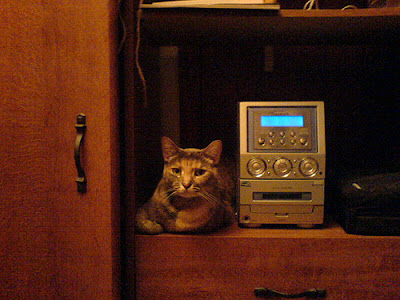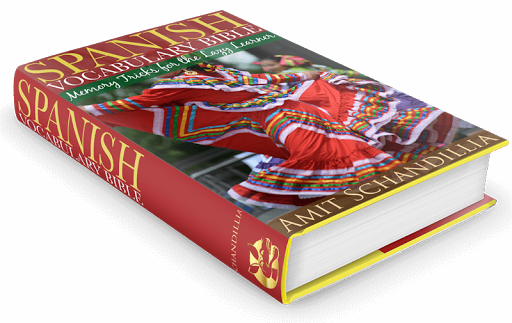Dr. Krashen’s input hypothesis
 |
| Get a crazy amount of input before you start speaking Spanish Photo credit: Tim licensed CC BY-SA 2.0 |
In case you are wondering how fluency could ever be attained, without even practicing the Spanish that you absorb during the input, look no further than your very own childhood. Don’t forget that you didn’t utter a single word of your native lingo for a good two years or so while solely being bombarded with constant input from around you. Did that help? Well, it must have done a hell of a job as it is nearly impossible for you to now forget your mother tongue after those years of foundation-building!
If this is still not solid enough reasoning to win your vote, let me tell you where this hypothesis came from. It is a world-renowned linguist and educator who goes by the name of Dr. Stephan Krashen. The fact that he has published over 300 books and research papers in the field of second language acquisition and that he goes to the University of Southern California as a Professor emeritus, should be enough to tell you that this man means business.
How much input is enough input?
OK, now down to the brass-tacks. So, how is this “input hypothesis” to be applied to your leal life Spanish program? Well, it couldn’t get any clearer; the first and the most important thing is to build the ultimate immersion environment around yourself and get an insane amound of input in Spanish, day in and day out. It is also equally important that you set your mind around “acquiring” Spanish and not “learning.” This step is deceptively simple so be careful. What acquiring means is what we did with our mother tongue when we were toddlers. To your Spanish program it means that you shouldn’t calculate how much time to dedicate to Spanish if you want to acquire it. Acquisition cannot be a deliberate activity. It has to be infinitely immersive.
Listen to hours of Latino music, read pages and pages of Spanish novels and newspapers, watch hours of Spanish videos, movies and telenovelas. Essentially don’t attach a rock-solid timeframe to any of these activities. Spanish should flow freely in your world. If your assign hours to any of these activities, you are mostly setting yourself up for failure. Instead of targeting to listen to Spanish music for an hour everyday, you should be targeting listening to only Spanish music whenever you listen to music, regardless of how long. Similarly, I wouldn’t instruct myself to read El Universal® for 30 minutes a day; instead, I will mandate myself to pick El Universal® (or, El País® or some other Spanish paper) and nothing else every time I wish to read a newspaper. This is how Spanish becomes a part of your life. This how Spanish becomes your life. This is how you acquire Spanish. by first allowing Spanish to acquire you!
The worst approach
As if conspiring to keep us from ever becoming bilingual, our schools and colleges have always stressed on grammar and vocabulary like our life depended on them. We are institutionalized to first study and “master” the billion rules of grammer before we open the taps of Spanish input. And then the traditional next step as dictated by academicians around the world is to produce content in Spanish (poetry recitation, forced conversation, essay writing, you name it). Only once we have done a certain amount of output as mandated by our teachers, are we introduced to extensive input, such as reading Spanish stories, listening to Spanish music, well, basically all the fun stuff we can imagine. The sequence is so perfectly reversed that it almost seems deliberate!
The right approach
The natural order of things should be exactly the reverse of what we traditionally do in schools. So, the first step becomes tons and tons of fun stuff in a phase called “input phase”. Just listen and read and listen and read. No talking, no writing, no essays, no recitations. The ultimate couch-potato’s promised land of milk and honey! Only once comfortable with this phase (your comprehension abilities will tell you, don’t worry about when), it’s time to start producing. Imitate native speakers, recite Spanish poetry, sing Spanish songs, write Spanish essays, talk in Spanish, chat in Spanish.
In short, just barf out all the Spanish that you have been acquiring through silent input over all these months. The last step, interestingly, happens to be grammar. Yes, you were speaking fluent English (or whatever your native tongue is) way before those monsters buried you under piles of grammar rules. Grammar is never the be-all of any language. It should only be a tool used to perfect your speech and writing once you are well-versed with the language in every practical sense.
Grammar is indispensible. It is grammar that gives a literary flair to your Spanish. It is grammar that tells you how Spanish changes colors when moved from the books to the streets. But the right time to scratch under the surface for grammar is in the end and not in the beginning. A sufficient amount of input is all you need to be able to tell what word sequence sounds correct and what doesn’t.
So, strap your boots and dive head-on into the ocean of Spanish before you even think of grammar. until you are conversant enough, stow that heavy, red book away – out of sight, out of reach. Just take in the Spanish around you. Soak it all up. Have fun. And enjoy as you get fluent phrase by phrase, word by word, absolutely unaware. Think of a lazier way to acquire Spanish? I bet you can’t.



.png)
This April I'm organizing a group of fifteen construction workers to make basic block houses for mothers who are bringing up their youngsters by themselves. Almost all of these men don't understand Spanish and are asking me about Spanish learning programs.
ReplyDeleteI tell them to get RocketSpanish (video presentation here http://vidshrt.com/Spanish-rocketCkN ), why?, because I use it and it's effective. I'm on a permanent quest to achieve fluency in Spanish so I've tested many products and self study programs. All of them have been boring or needed quite alot of discipline that I simply can't deal with. The lessons are engaging and hands-on, they cover numerous real situations that I come across usually when I stay in Venezuela, it even teaches me how to argue in Spanish, you just can't beat that.
I have a lot of good friends in Venezuela, until now our conversations have been minimal. I look forward to my next visit to take these relationships to the next level with my newly acquired Spanish skills. So if you need to learn Spanish, try Rocket Spanish. Stop searching and get learning!